APPLAUSE DOESN'T PAY RENT: HOW YOUNG ARTISTS AND CULTURAL WORKERS LIVE
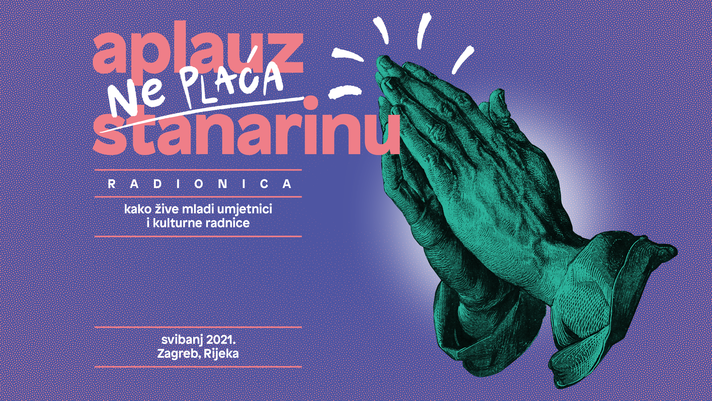
This project deals with the education and empowering of young artists and cultural workers in Croatia to actively advocate and fight for better working conditions in the field of culture. The project takes place in Zagreb, Rijeka and Pula, and its main participants are 30 young people working or studying in the field of art and culture: artists, designers, cultural workers (honorary, those engaged in civil society organizations or cultural institutions - either through employment contracts or through different government measures of professional training), students of the Academy of Arts and Social Sciences (History of Art, Comparative Literature, Philosophy, History, Languages, Information Sciences), student workers and others. In addition, other cultural workers and artists also participate in the project, primarily those engaged in advocating for better working conditioned in the field, as well as representatives of relevant institutions and public authorities. Project activities consist of workshops, exchange of knowledge, discussions and public program, through which the working conditions of young people in the field of culture are explored and discussed, the role of culture in society is debated, young people are educated about current cultural policies and empowered for advocacy and the dialogue is being established among the young and other cultural workers and artists as well as representatives od relevant public institutions.
Formal artistic and humanistic education in Croatia is still pervaded by the idea of the privilege of art and culture in relation to the wider social and political context. The concepts of artistic genius and the autonomy of art are rarely questioned, and the works of art and culture are not approached from the perspective of the conditions of their production. Formal education does not provide enough knowledge on sociology, history and cultural studies or the basis for systematic analysis of the culture and society in which young people live and work. This is why young artists and cultural workers, once they enter the labor market during or after their studies, face the harsh realities of extremely precarious working conditions. The field of culture, under the pressure of diminishing public funding and increasing commercialization, is dominated by temporary, casual, project, part-time, poorly paid or unpaid jobs. A few available studies, as well as the voices of the cultural workers and artists themselves, that we can hear in the public space, are confirming that situation.
Young people who are offered mostly insecure jobs and whose unemployment rate in Croatia is very high, are especially vulnerable among cultural workers and artists. That is why this project is dedicated directly to them. The aims of the project are to explore the working conditions of young people in the field of culture and the arts, to open discussions with them about culture and its socio-political context, to familiarize them with current local, national and European cultural policies and their effects on the conditions of cultural production, to connect them to the current initiatives that fight for better working conditions in culture, empower them to actively advocate for better working conditions and connect with other precarious workers, but also to open a dialogue among them, other cultural actors and representatives of relevant institutions on the possibility of improving cultural and youth policies in the direction of better working conditions for everyone.
PROJECT DURATION: 1.12.2020. - 30.11.2021.
DESIGN: Lana Grahek
Project “Applause Doesn’t Pay Rent: How Young Artists and Cultural Workers Live’’ is carried out within the Erasmus+ program, and is co-funded by the EU funds, with the support of the Agency for Mobility and EU Programs. Any views expressed in this announcement are solely those of the organizer. The Agency for Mobility and EU Programs, and the European Commission cannot be held responsible for the use of information it contains.
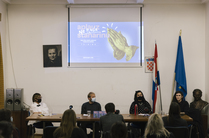
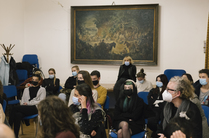
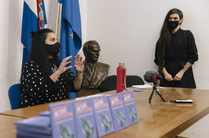
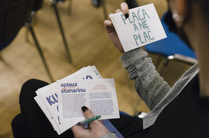
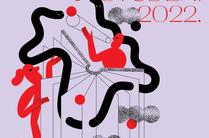 HANDS FULL OF CLOUDS: PARTICIPATORY READING WORKSHOPS IN HIGH SCHOOL DORMITORIES
HANDS FULL OF CLOUDS: PARTICIPATORY READING WORKSHOPS IN HIGH SCHOOL DORMITORIES
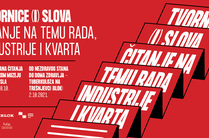 FROM AN UNHEALTHY APARTMENT TO THE COMMUNITY HEALTH CENTER – TUBERCULOSIS IN TREŠNJEVKA
FROM AN UNHEALTHY APARTMENT TO THE COMMUNITY HEALTH CENTER – TUBERCULOSIS IN TREŠNJEVKA
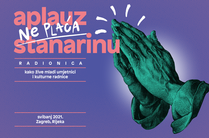 APPLAUSE DOESN'T PAY RENT: HOW YOUNG ARTISTS AND CULTURAL WORKERS LIVE
APPLAUSE DOESN'T PAY RENT: HOW YOUNG ARTISTS AND CULTURAL WORKERS LIVE
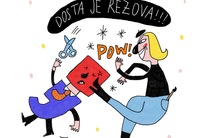 Culture on minimum wage - no go!
Culture on minimum wage - no go!
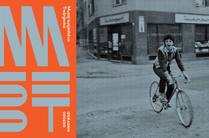 TREŠNJEVKA NEIGHBOURHOOD MUSEUM – BUILDING FROM BOTTOM UP
TREŠNJEVKA NEIGHBOURHOOD MUSEUM – BUILDING FROM BOTTOM UP
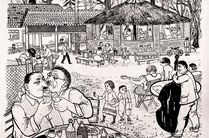 THE ART OF THE COLLECTIVE - CASE ZEMLJA
THE ART OF THE COLLECTIVE - CASE ZEMLJA
 DRAWING POLITICS, THE POLITICS OF DRAWING
DRAWING POLITICS, THE POLITICS OF DRAWING
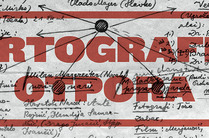 CARTOGRAPHY OF RESISTANCE
CARTOGRAPHY OF RESISTANCE
 HEROES WE LOVE
HEROES WE LOVE
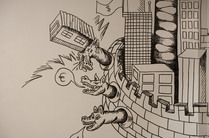 BETWEEN WORLDS
BETWEEN WORLDS
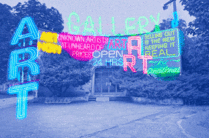 FOR STUDENT CENTRE AS A COMMON GOOD
FOR STUDENT CENTRE AS A COMMON GOOD
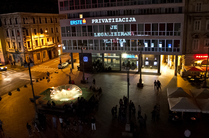 SHIP=CITY
SHIP=CITY
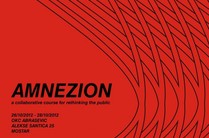 AMNEZION
AMNEZION
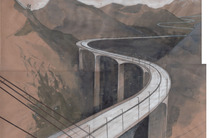 THE DAMNED DAM
THE DAMNED DAM
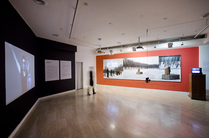 MONEY ETC.
MONEY ETC.
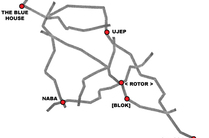 THE ART OF URBAN INTERVENTION
THE ART OF URBAN INTERVENTION
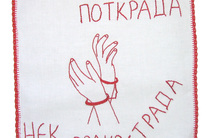 OPERATION: CITY 2008
OPERATION: CITY 2008
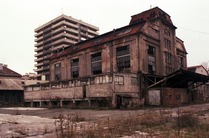 OPERATION: CITY 2005
OPERATION: CITY 2005
 MILK
MILK